The Grass is Always Greener...
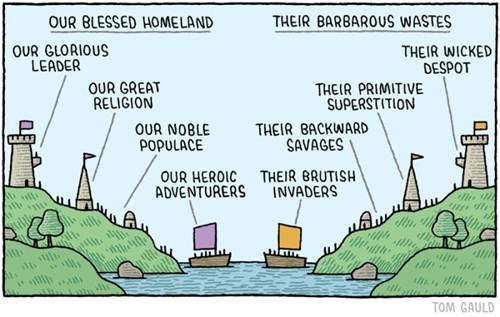
![]()
 The photo at the top of this article is not very subtle. It's intended to show how polarized life really is--between what we naively think is good and what is evil. This is a poor fit to the real world when we compare our Creator's assessment. What does He consider good and what is not good in His sight?
The photo at the top of this article is not very subtle. It's intended to show how polarized life really is--between what we naively think is good and what is evil. This is a poor fit to the real world when we compare our Creator's assessment. What does He consider good and what is not good in His sight?
Come now, you who say, “Today or tomorrow we will go to such and such a city, spend a year there, buy and sell, and make a profit” whereas you do not know what will happen tomorrow. For what is your life? It is even a vapor that appears for a little time and then vanishes away. Instead you ought to say, “If the Lord wills, we shall live and do this or that.” But now you boast in your arrogance. All such boasting is evil. Therefore, to him who knows to do good and does not do it, to him it is sin. (James 4:13-17)
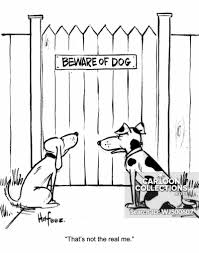 Our standards of good and evil, right and wrong, may or may not be anchored in God or they may be obvious to us from a little experience. Life has learning curve for everyone--respect for the Law, for Government, for Elders, for All Sorts of Dangers and Perils in the world--that is, who to trust and who to be wary of. The reality that we are here in order that we might trust Jesus escapes the majority.
Our standards of good and evil, right and wrong, may or may not be anchored in God or they may be obvious to us from a little experience. Life has learning curve for everyone--respect for the Law, for Government, for Elders, for All Sorts of Dangers and Perils in the world--that is, who to trust and who to be wary of. The reality that we are here in order that we might trust Jesus escapes the majority.
To anticipate: The first "not good" in the Bible was said about our forefather Adam, Genesis 2:18. There was then no sin, no evil anywhere. It was a Garden setting of innocence and delight. During the six days God created everything, the first six days were pronounced "good" and the seventh day as "very good."
Then the Lord God took the man and put him in the garden of Eden to tend and keep it. And the Lord God commanded the man, saying, “Of every tree of the garden you may freely eat; but of the tree of the knowledge of good and evil you shall not eat, for in the day that you eat of it you shall surely die.” And the Lord God said, “It is not good that man should be alone; I will make him a helper comparable to him.” Out of the ground the Lord God formed every beast of the field and every bird of the air, and brought them to Adam to see what he would call them. And whatever Adam called each living creature, that waists name. So Adam gave names to all cattle, to the birds of the air, and to every beast of the field. But for Adam there was not found a helper comparable to him. And the Lord God caused a deep sleep to fall on Adam, and he slept; and He took one of his ribs, and closed up the flesh in its place. Then the rib which the Lord God had taken from man He made into a woman, and He brought her to the man. And Adam said: “This is now bone of my bones And flesh of my flesh; She shall be called Woman, Because she was taken out of Man.”
Erma Louise Bombeck (February 21, 1927 – April 22, 1996) was an American humorist who achieved great popularity for her syndicated newspaper humor column describing suburban home life from 1965 to 1996. She also published 15 books, most of which became bestsellers. Between 1965 and April 17, 1996 – five days before her death – Bombeck wrote over 4,000 newspaper columns, using broad and sometimes eloquent humor, chronicling the ordinary life of a Midwestern suburban housewife. By the 1970s, her columns were read semi-weekly by 30 million readers of the 900 newspapers in the U.S. and Canada.
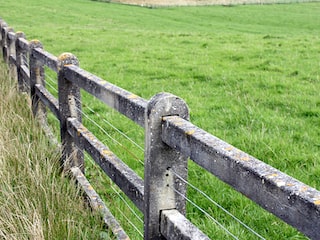 That Garden and our First parents are far gone though it all happened, probably, only about eight thousand years ago. The Fall of man was not a mere stumble--it was a cosmic disaster. In our disbelief we see everything through rose colored glasses, and we insist on a total rewrite of history to suit our fancy.
That Garden and our First parents are far gone though it all happened, probably, only about eight thousand years ago. The Fall of man was not a mere stumble--it was a cosmic disaster. In our disbelief we see everything through rose colored glasses, and we insist on a total rewrite of history to suit our fancy.Who then is Paul, and who is Apollos, but ministers through whom you believed, as the Lord gave to each one? I planted, Apollos watered, but God gave the increase. So then neither he who plants is anything, nor he who waters, but God who gives the increase. Now he who plants and he who waters are one, and each one will receive his own reward according to his own labor. For we are God’s fellow workers; you are God’s field, you are God’s building. According to the grace of God which was given to me, as a wise master builder I have laid the foundation, and another builds on it. But let each one take heed how he builds on it. For no other foundation can anyone lay than that which is laid, which is Jesus Christ. Now if anyone builds on this foundation with gold, silver, precious stones, wood, hay, straw, each one’s work will become clear; for the Day will declare it, because it will be revealed by fire; and the fire will test each one’s work, of what sort it is. If anyone’s work which he has built on it endures, he will receive a reward. If anyone’s work is burned, he will suffer loss; but he himself will be saved, yet so as through fire. Do you not know that you are the temple of God and that the Spirit of God dwells in you? If anyone defiles the temple of God, God will destroy him. For the temple of God is holy, which temple you are. Let no one deceive himself. If anyone among you seems to be wise in this age, let him become a fool that he may become wise. For the wisdom of this world is foolishness with God. For it is written, “He catches the wise in their own craftiness” and again, “The LORD knows the thoughts of the wise, that they are futile.” Therefore let no one boast in men. For all things are yours: whether Paul or Apollos or Cephas, or the world or life or death, or things present or things to come—all are yours. And you are Christ’s, and Christ is God’s. (1 Corinthians 3:5-23)







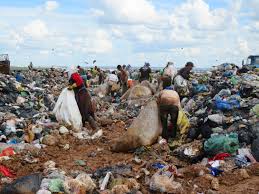
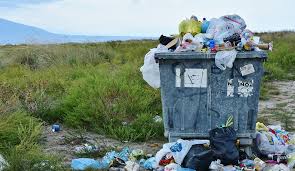


But we are all as an unclean thing, and all our righteousnesses are as filthy rags; and we all do fade as a leaf; and our iniquities, like the wind, have taken us away." (Isaiah 64:6)
“The heart of man is deceitful above all things, And desperately wicked; Who can know it? (Jeremiah 17:9)
“I sent among you a plague after the manner of Egypt; Your young men I killed with a sword, Along with your captive horses; I made the stench of your camps come up into your nostrils;Yet you have not returned to Me,” Says the LORD. (Amos 4:10)
Therefore, brethren, having boldness to enter the Holiest by the blood of Jesus, by a new and living way which He consecrated for us, through the veil, that is, His flesh, and having a High Priest over the house of God,let us draw near with a true heart in full assurance of faith, having our hearts sprinkled from an evil conscience and our bodies washed with pure water. Let us hold fast the confession of our hope without wavering, for He who promised is faithful. And let us consider one another in order to stir up love and good works,not forsaking the assembling of ourselves together, as is the manner of some, but exhorting one another, and so much the more as you see the Day approaching. (Hebrews 10:19-25)
‘You search the scriptures because you think that in them you have eternal life; and it is they that testify on my behalf. Yet you refuse to come to me to have life. I do not accept glory from human beings. But I know that you do not have the love of God in you. I have come in my Father’s name, and you do not accept me; if another comes in his own name, you will accept him. How can you believe when you accept glory from one another and do not seek the glory that comes from the one who alone is God? Do not think that I will accuse you before the Father; your accuser is Moses, on whom you have set your hope. If you believed Moses, you would believe me, for he wrote about me. But if you do not believe what he wrote, how will you believe what I say?’ (John 5:39-47)
Slaughterhouse Religion
Playwright George Bernard Shaw once angrily attacked fundamental Christianity by saying, “It is saturated with the ancient – and to me quite infernal – superstition of atonement by blood sacrifice, which I believe Christianity must completely get rid of, if it is to survive among thoughtful people” (08/79).
None of us can survive cannot survive without the atonement of blood sacrifice--- “without the shedding of blood, there is no remission of sins.” (Hebrews 9:22). The first blood sacrifice in was to provide a suitable covering for our first parents. Fig leaves are insufficient to hide our nakedness from God. The skins of a slain lamb is the only suitable covering--until an adequate sacrifice was provided in history by the slain Lamb of God--Jesus. Until that happened, human evil could only be covered by proxy. Covered but not removed. The slaying of God's Lamb is an accomplished act in eternity. He was slain before the foundation of the world.
"...And all that dwell upon the earth shall worship him, whose names are not written in the book of life of the Lamb slain from the foundation of the world." (Revelation 13:8)

Psalm 49
To the Chief Musician. A Psalm of the sons of Korah.
Hear this, all peoples;
Give ear, all inhabitants of the world, 2 Both low and high,
Rich and poor together. 3 My mouth shall speak wisdom,
And the meditation of my heart shall give understanding.
4 I will incline my ear to a proverb;
I will disclose my dark saying on the harp.
5 Why should I fear in the days of evil,
When the iniquity at my heels surrounds me?
6 Those who trust in their wealth
And boast in the multitude of their riches,
7 None of them can by any means redeem his brother,
Nor give to God a ransom for him—For the redemption of their souls is costly,
And it shall cease forever—9 That he should continue to live eternally,
And not see the Pit.
10 For he sees wise men die;
Likewise the fool and the senseless person perish,
And leave their wealth to others.
11 Their inner thought is that their houses will last forever,
Their dwelling places to all generations;
They call their lands after their own names.
12 Nevertheless man, though in honor, does not remain;
He is like the beasts that perish.
13 This is the way of those who are foolish,
And of their posterity who approve their sayings. Selah
14 Like sheep they are laid in the grave;
Death shall feed on them;
The upright shall have dominion over them in the morning;
And their beauty shall be consumed in the grave, far from their dwelling.
15 But God will redeem my soul from the power of the grave,
For He shall receive me. Selah
16 Do not be afraid when one becomes rich,
When the glory of his house is increased;
17 For when he dies he shall carry nothing away;
His glory shall not descend after him.
18 Though while he lives he blesses himself
(For men will praise you when you do well for yourself),
19 He shall go to the generation of his fathers;
They shall never see light.20 A man who is in honor, yet does not understand,
Is like the beasts that perish.
Thomas Constable: Abbreviated notes on Psalm 49
Verse 1-2: The psalmist urged all people to listen to what he had to say in this poem. All kinds of people need to be aware of the insight he revealed here: both the low (with small estates) and the high (with large estates), the rich and the poor. This applies to the wicked as well as the righteous. Verses 1-20: The writer reflected on the problem that the prosperity of the wicked poses in this wisdom psalm. He observed that there are many ungodly people who enjoy many physical blessings. Still, he concluded that the righteous are better off because they have a sure hope for the future. "The psalm is an encouragement to the godly who are haunted by the power and influence of the rich."
Verses 3-4: What follows is Wisdom of Solomon, but a person must have insight to appreciate it. It is a riddle or dark saying in this respect. Spiritual illumination helps us perceive the truth. "The language of the prelude, the call to mankind, uses many of the terms which open the book of Proverbs, and proclaims this a wisdom Psalm, offering instruction to men rather than worship to God."
Verse 5-6: This rhetorical question sets forth the folly of fearing when wicked people oppose the righteous. It introduces the revelation that the prosperous ungodly enjoy a false security. "It's good to have things that money can buy, if we don"t lose the things money can"t buy. It"s sad when people start to confuse prices with values."Verses 7-9: Material wealth cannot prevent death. No one has enough money to buy life back when God claims it in death. The point here is that we cannot buy our way, or anyone else"s way, out of dying. The psalmist was not speaking of purchasing eternal salvation here.
Verses 10-12: Everyone dies eventually, even though some live with the illusion of immortality. The fact that people try to perpetuate their reputations on the earth forever shows that they want to live forever. However, Prayer of Manasseh -like the animals-will eventually go into the grave. Of course, the psalmist did not mean that man"s fate is identical to that of animals in all respects. He only meant that both die. Later Revelation, that saints living at the time of the Rapture will experience translation without dying, does not negate the psalmist"s point.
Verses 13-14: The writer marveled at the folly of the proud wicked. How silly it is to live only for the present! Death will bring to an end all the good things the wicked live for. The wicked may dominate the upright in this life, but a new day is coming in which God will turn the tables. "The Bible is not against riches per se but the attitude of self-sufficiency and self-confidence so often associated with riches. The rich come under condemnation for their insensitivity, scheming, deception, and attitude that they rule the world. The Bible does not condemn the godly rich who received their wealth as a blessing from God (e.g., Job, Abraham, David, et al.).
Verses 13-20: Encouragement to trust in God
"The great But God ...is one of the mountain-tops of Old Testament hope." God will free the righteous from the power of the grave and will receive them on the other side of the grave. This is one of the Old Testament passages that reveal that believers living when the psalmist did had hope of life after death (cf. Job 19:25; Hebrews 11:10; et al.). Revelation of the bodily resurrection, however, was obscure until Jesus Christ"s resurrection and His apostles" revelations on that subject (1 Thessalonians 4; 1 Corinthians 15). "It is possible that the psalmist is looking at ultimate eschatological realities, anticipating his own resurrection and a time when the righteous, not the rich, will rule on earth. However, it is more likely that the ascendancy of the righteous refers to their vindication in this life, a well-attested theme in the Psalter, especially in the wisdom psalms (see, e.g., Psalm 1, 34, 37, 112. Psalm 49:15 refers to God"s preserving the psalmist through "evil days" (cf. Psalm 49:5) by keeping him from premature, violent death at the hands of the oppressive rich and from the calamity that overtakes them. "Morning" Psalm 49:14, which brings to mind the dawning of a new day after a night of darkness, aptly symbolizes the cessation of these "evil days."
Verses 16-19:It is foolish to be jealous of wicked unbelievers. Their prosperity is only temporary. The wise person should not allow the wealth of the ungodly to intimidate him or her. "We can"t take wealth with us, but we can send it ahead." "It isn"t a sin to have wealth, provided we earned it honestly, spend it wisely, and invest it faithfully in that which pleases the Lord."Verse 20: The psalmist repeated his concluding statement in the previous section but here he changed it slightly. Here he stressed the wicked person"s lack of understanding. There he stressed his lack of endurance. We who are believers should not envy the ungodly who prosper in this life. We should not feel inferior to them either. All that they are living for will perish with them. Those who fear God, however, can expect a glorious future with the Lord beyond the grave. (Thomas Constable: notes on Psalm 49)
How Much Blood?
Under the Old Covenant, sin could be "covered" but not taken away! Until Jesus came on the scene there was no way sin could be removed by any ritual, sacrifice, by good works, or by prayer. One could only hope for "the Final Redemption." Then it happened: The coming of Jesus Christ into the world changed things forever. Sin was now "atoned for" ("paid in full") --and could be removed once and for all--instead of being merely covered over. This was the best possible Good News!
To gain a glimpse into the magnitude consider the quantity of blood involved when King Solomon dedicated the First Temple in Jerusalem 3000 years ago:
Then the king and all Israel with him offered sacrifices before the Lord. And Solomon offered a sacrifice of peace offerings, which he offered to the Lord, twenty-two thousand bulls and one hundred and twenty thousand sheep. So the king and all the children of Israel dedicated the house of the Lord. On the same day the king consecrated the middle of the court that was in front of the house of the Lord; for there he offered burnt offerings, grain offerings, and the fat of the peace offerings, because the bronze altar that was before the Lord was too small to receive the burnt offerings, the grain offerings, and the fat of the peace offerings.
At that time Solomon held a feast, and all Israel with him, a great assembly from the entrance of Hamath to the Brook of Egypt, before the Lord our God, seven days and seven more days—fourteen days. On the eighth day he sent the people away; and they blessed the king, and went to their tents joyful and glad of heart for all the good that the Lord had done for His servant David, and for Israel His people.(1 Kings 8:62-65)The problem is, God is holy and we are not! Man and God are only reconciled in the Cross of Jesus.
Important References to the Blood of Christ
A. The cup of blessing which we bless, is it not the communion of the blood of Christ? The bread which we break, is it not the communion of the body of Christ? (1 Corinthians 10:16)
B. Therefore remember that you, once Gentiles in the flesh—who are called Uncircumcision by what is called the Circumcision made in the flesh by hands—that at that time you were without Christ, being aliens from the commonwealth of Israel and strangers from the covenants of promise, having no hope and without God in the world. But now in Christ Jesus you who once were far off have been brought near by the blood of Christ. (Ephesians 2:11-13)
C. "...even the first covenant had ordinances of divine service and the earthly sanctuary. For a tabernacle was prepared: the first part, in which was the lampstand, the table, and the showbread, which is called the sanctuary; and behind the second veil, the part of the tabernacle which is called the Holiest of All, which had the golden censer and the ark of the covenant overlaid on all sides with gold, in which were the golden pot that had the manna, Aaron’s rod that budded, and the tablets of the covenant; and above it were the cherubim of glory overshadowing the mercy seat. Of these things we cannot now speak in detail. Now when these things had been thus prepared, the priests always went into the first part of the tabernacle, performing the services. But into the second part the high priest went alone once a year, not without blood, which he offered for himself and for the people’s sins committed in ignorance; 8 the Holy Spirit indicating this, that the way into the Holiest of All was not yet made manifest while the first tabernacle was still standing. It was symbolic for the present time in which both gifts and sacrifices are offered which cannot make him who performed the service perfect in regard to the conscience—concerned only with foods and drinks, various washings, and fleshly ordinances imposed until the time of reformation. But Christ came as High Priest of the good things to come, with the greater and more perfect tabernacle not made with hands, that is, not of this creation. Not with the blood of goats and calves, but with His own blood He entered the Most Holy Place once for all, having obtained eternal redemption. For if the blood of bulls and goats and the ashes of a heifer, sprinkling the unclean, sanctifies for the purifying of the flesh, how much more shall the blood of Christ, who through the eternal Spirit offered Himself without spot to God, cleanse your conscience from dead works to serve the living God? And for this reason He is the Mediator of the new covenant, by means of death, for the redemption of the transgressions under the first covenant, that those who are called may receive the promise of the eternal inheritance. For where there is a testament, there must also of necessity be the death of the testator. For a testament is in force after men are dead, since it has no power at all while the testator lives. Therefore not even the first covenant was dedicated without blood. For when Moses had spoken every precept to all the people according to the law, he took the blood of calves and goats, with water, scarlet wool, and hyssop, and sprinkled both the book itself and all the people, saying, “This is the blood of the covenant which God has commanded you.” Then likewise he sprinkled with blood both the tabernacle and all the vessels of the ministry. And according to the law almost all things are purified with blood, and without shedding of blood there is no remission. Therefore it was necessary that the copies of the things in the heavens should be purified with these, but the heavenly things themselves with better sacrifices than these. For Christ has not entered the holy places made with hands, which are copies of the true, but into heaven itself, now to appear in the presence of God for us; not that He should offer Himself often, as the high priest enters the Most Holy Place every year with blood of another—He then would have had to suffer often since the foundation of the world; but now, once at the end of the ages, He has appeared to put away sin by the sacrifice of Himself. And as it is appointed for men to die once, but after this the judgment, so Christ was offered once to bear the sins of many. To those who eagerly wait for Him He will appear a second time, apart from sin, for salvation. (Hebrews 9)D. The cup of blessing which we bless, is it not the communion of the blood of Christ? The bread which we break, is it not the communion of the body of Christ? (1 Corinthians 10:16)
E. "...elect according to the foreknowledge of God the Father, in sanctification of the Spirit, for obedience and sprinkling of the blood of Jesus Christ: Grace to you and peace be multiplied." (1 Peter 1:2 NKJV)
F. "Blessed be the God and Father of our Lord Jesus Christ, who according to His abundant mercy has begotten us again to a living hope through the resurrection of Jesus Christ from the dead, to an inheritance incorruptible and undefiled and that does not fade away, reserved in heaven for you, who are kept by the power of God through faith for salvation ready to be revealed in the last time. In this you greatly rejoice, though now for a little while, if need be, you have been grieved by various trials, that the genuineness of your faith, being much more precious than gold that perishes, though it is tested by fire, may be found to praise, honor, and glory at the revelation of Jesus Christ, whom having not seen you love. Though now you do not see Him, yet believing, you rejoice with joy inexpressible and full of glory, receiving the end of your faith—the salvation of your souls....knowing that you were not redeemed with corruptible things, like silver or gold, from your aimless conduct received by tradition from your fathers, but with the precious blood of Christ, as of a lamb without blemish and without spot. He indeed was foreordained before the foundation of the world, but was manifest in these last times for you who through Him believe in God, who raised Him from the dead and gave Him glory, so that your faith and hope are in God." (1 Peter 1:3-25)
G. "But if we walk in the light as He is in the light, we have fellowship with one another, and the blood of Jesus Christ His Son cleanses us from all sin." (1 John 1:7)
H. "...and from Jesus Christ, the faithful witness, the firstborn from the dead, and the ruler over the kings of the earth. To Him who loved us and washed us from our sins in His own blood..." (Revelation 1:5)

A Blood-Bought Bride for Jesus
After this, Jesus, Now a vessel full of sour wine was sitting there; and they filled a sponge with sour wine, put it on hyssop, and put into H is mouth. So when Jesus had received the sour wine, He said, “It is finished!” And bowing His head, He gave up His spirit. Therefore, because it was the Preparation Day, that the bodies should not remain on the cross on the Sabbath (for that Sabbath was a high day), the Jews asked Pilate that their legs might be broken, and that they might be taken away. Then the soldiers came and broke the legs of the first and of the other who was crucified with Him.
But when they came to Jesus and saw that He was already dead, they did not break His legs. But one of the soldiers pierced His side with a spear, and immediately blood and water came out. And he who has seen has testified, and his testimony is true; and he knows that he is telling the truth, so that you may believe. For these things were done that the Scripture should be fulfilled, “Not one of His bones shall be broken.” And again another Scripture says, “They shall look on Him whom they pierced.” (John 19:28-37)
There is a fountain filled with blood, drawn from Immanuel's veins
And sinners plunged beneath that flood; lose all their guilty stains
Lose all their guilty stains; lose all their guilty stains
And sinners plunged beneath that flood; lose all their guilty stains.
E'er since by faith I saw the stream, Thy flowing wounds supply,
Redeeming love has been my theme, And shall be till I die;
And shall be till I die, And shall be till I die;
Redeeming love shall be my theme, And shall be till I die.
Know Thyself
Psalm 139
O LORD, You have searched me and known me.
You know my sitting down and my rising up; You understand my thought afar off.
You comprehend my path and my lying down,
And are acquainted with all my ways.
For there is not a word on my tongue,
But behold, O LORD, You know it altogether. you have hedged me behind and before,
And laid Your hand upon me.
Such knowledge is too wonderful for me;
It is high, I cannot attain it.
Where can I go from Your Spirit?
Or where can I flee from Your presence?
If I ascend into heaven, You are there;
If I make my bed in hell, behold, You are there.
If I take the wings of the morning,
And dwell in the uttermost parts of the sea,
Even there Your hand shall lead me,
And Your right hand shall hold me.
If I say, “Surely the darkness shall fall on me,”
Even the night shall be light about me;
Indeed, the darkness shall not hide from You,
But the night shines as the day;
The darkness and the light are both alike to You.
For You formed my inward parts;
You covered me in my mother’s womb.
I will praise You, for I am fearfully and wonderfully made;
Marvelous are Your works,
And that my soul knows very well. My frame was not hidden from You,
When I was made in secret,
And skillfully wrought in the lowest parts of the earth.Your eyes saw my substance, being yet unformed.
And in Your book they all were written,
The days fashioned for me,
When as yet there were none of them.
How precious also are Your thoughts to me, O God!
How great is the sum of them!
If I should count them, they would be more in number than the sand;
When I awake, I am still with You.
Oh, that You would slay the wicked, O God!
Depart from me, therefore, you bloodthirsty men. For they speak against You wickedly;
Your enemies take Your name in vain.
Do I not hate them, O LORD, who hate You?
And do I not loathe those who rise up against You? I hate them with perfect hatred;
I count them my enemies.
Search me, O God, and know my heart;
Try me, and know my anxieties; And see if there is any wicked way in me,
And lead me in the way everlasting.
"Man looks on the outward appearance but God looks upon the heart." (1 Samuel 16:7)
“The heart is deceitful above all things,
And desperately wicked;
Who can know it? I, the LORD, search the heart, I test the mind,
Even to give every man according to his ways,
According to the fruit of his doings." (Jeremiah 17:9,10)
“There is none righteous, no, not one;
There is none who understands;
There is none who seeks after God.
They have all turned aside;
They have together become unprofitable;
There is none who does good, no, not one.”
“Their throat is an open tomb;
With their tongues they have practiced deceit”
“The poison of asps is under their lips”;
“Whose mouth is full of cursing and bitterness.”
“Their feet are swift to shed blood;
Destruction and misery are in their ways;
And the way of peace they have not known.”
“There is no fear of God before their eyes.”
Now we know that whatever the law says,
it says to those who are under the law, that every mouth may be stopped,
and all the world may become guilty before God.
Therefore by the deeds of the law no flesh will be justified in His sight,
for by the law is the knowledge of sin." (Romans 3:10-20)
Some of us are more unconscious than others, but modern psychology suggests we may all be at least 90% unconscious. Do we know our own motives?
Not usually. Don't we all make many misteaks? information about ourselves we can't admit, gets stuffed into the unconscious!The Excluded Ones
The Ego Papers
Disconnected!
No King
Bondage!
That Last One Percent
Taking God Seriously
Nekrosis and Thanatos (Dying and Death)
Developing Priorities in Life
The End of Sex
The End of Sex as we Know it (Part 2)
Mankind's Downward Spiral
Perilous Times
Idolatry Notes
Denial
We are each loved by God. He wants none of us to perish. Yet eternal separation of God can and does happen, if we steadfastly refuse God's overtures of reconciliation, healing and wholeness. Hell has been called "The Backside of Love" for good reason. God IS Love and to accept His love is to enjoy Him forever. He can not force His love on anyone no badly they need it.
From C.S. Lewis
<"You cannot take all luggage with you on all journeys; on one journey even your right hand and your right eye may be among the things you have to leave behind.
"We are not living in a world where all roads are radii of a circle and where all, if followed long enough, will therefore draw gradually nearer and finally meet at the centre: rather in a world where every road, after a few miles, forks into two, and each of those into two again, and at each fork you must make a decision.
"Even on a biological level life is not like a pool but like a tree. It does not move towards unity but away from it and the creatures grow further apart as they increase in perfection.
"Good, as it ripens, becomes more different not only from evil but from other good. I do not think that all who choose wrong roads perish; but their rescue consists in being put back on the right road.
"A wrong sum can be put right: but only by going back till you find your error and working it afresh from that point, never by simply going on. Evil can be undone, but it cannot 'develop' into good. Time does not heal it. The spell must be unwound, bit by bit, 'with backwards mutters of dissevering power'---or else not.
"It is still 'either-or.' If we insist on keeping Hell (or even earth) we shall not see Heaven: if we accept Heaven we shall not be able to retain even the smallest and most intimate souvenirs of Hell.
"I believe, to be sure, that any man who reaches Heaven will find that what he has abandoned (even in plucking out his right eye) was precisely nothing: that the kernel of what he was really seeking even in his most depraved wishes will be there, beyond expectation, waiting for him in 'the High Countries.'" (C. S. Lewis, Preface to The Great Divorce)
The Onion and the Lake of Fire
Dostoevski, in The Brothers Karamazov, tells a fable about a very wicked woman who died. The devils took her to hell and threw her into the lake of fire. Her guardian angel was very puzzled as to how he might do something to help her. So he thought through her whole life to see if he could find at least one good thing that she had done which he might present before God. Finally he went to God and said, "Once a beggar came by when she was weeding her garden, and she pulled an onion out and gave it to him to eat." God said to the angel, "All right, then you go down and get that onion and hold it out to her in the lake of fire. Tell her to take hold of it, and if you can pull her out with that onion she can come to Paradise."
So the angel took the onion, went down to the lake of fire, and held it out to the woman. She grabbed hold and he began to pull. He pulled and pulled and, sure enough, he began to pull her right up out of the lake. She was almost completely free when some other sinners around her, seeing that she was about to escape, grabbed hold of her ankles so as to be pulled out with her. At first the onion held, and they too began to be pulled out. But the woman became very angry and cried, "This is my onion, and you're not going to go out with me!" And as she kicked them loose the onion broke and she fell back in and she is burning there to this day. (Related by Ray C. Stedman).
More Further Reading
My Search for the Ultimate | The Lord who Heals | What LSD did for me | Mankind's Downward Spiral | What's His Name?
The Ten Lepers | Israel the Wife of God and the Church the Bride of Christ | The Great Prostitute | Jezebel and Athaliah
Ray Stedman, Dealing with the Leprosy of Life | Ray Stedman, Sick Garments and Diseased Houses | Ray Stedman on the Left Behind
Remote Viewing, Channeling, ESP, the Power of God | Nekrosis and Thanatos (Dying and Death) | High King Jesus | The Fruitful Life
Passover AD 30: A Weekend in Jerusalem
Some Music
Nothing but The Blood of Jesus | On Jordan’s Stormy Banks | O Come, O Come Immanuel | There is a Fountain
Are You Washed in the Blood? v1 | Are You Washed in the Blood? v2 |Power in the Blood
Celtic Worship: In Christ Alone | Man of Sorrows | Lord of the Dance | Aric Leavitt Blue Grass Gospel | In The Cross | Amazing Grace
Majestic Sweetness |There is Power in the Blood | O the Deep, Deep love of Jesus | Come, Thou Almighty King | Heavenly Sunshine
And I saw in the right hand of Him who sat on the throne a scroll written inside and on the back, sealed with seven seals.
Then I saw a strong angel proclaiming with a loud voice,
“Who is worthy to open the scroll and to loose its seals?”
And no one in heaven or on the earth or under the earth was able to open the scroll, or to look at it.
So I wept much, because no one was found worthy to open and read the scroll, or to look at it.
But one of the elders said to me, “Do not weep. Behold, the Lion of the tribe of Judah, the Root of David,
has prevailed to open the scroll and to loose its seven seals.”
And I looked, and behold, in the midst of the throne and of the four living creatures,
and in the midst of the elders, stood a Lamb as though it had been slain,
having seven horns and seven eyes, which are the seven Spirits of God sent out into all the earth.
Then He came and took the scroll out of the right hand of Him who sat on the throne. "(Revelation 5:1-7)
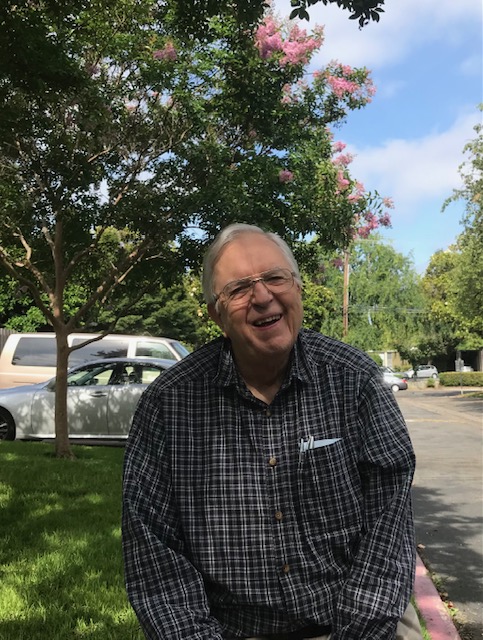
Lambert's Main Library
Email Lambert Dolphin
Archive for Newsletters
Library Annex (600+ free articles)
Interviews

January 2, 2021, April 1, 2021, May 5, 2020. February 23, 2023.